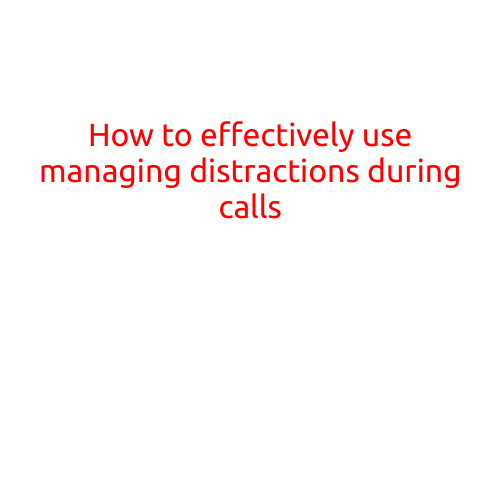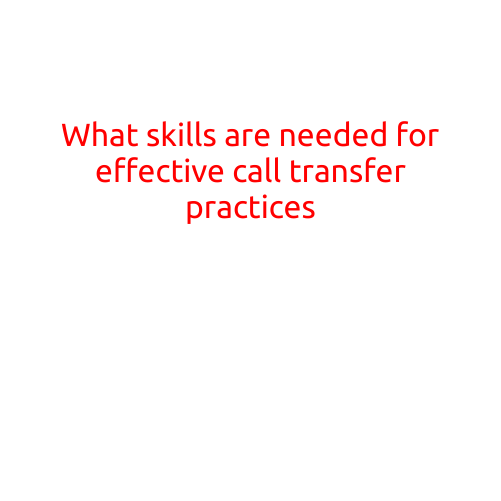
When Should You Be Proactive on Calls?
Effective communication is crucial in both personal and professional settings. In the business world, phone calls are a crucial aspect of daily operations. However, being passive on calls can lead to missed opportunities, misunderstandings, and even lost business. Being proactive on calls can make all the difference in building strong relationships, resolving issues quickly, and driving success. But when should you be proactive on calls?
Knowing When to Take the Lead
There are situations where taking the lead on a call can pay dividends. Here are some scenarios where being proactive is essential:
- Introduce yourself: When initiating a call, take the opportunity to introduce yourself, state your purpose, and get straight to the point. This sets the stage for a productive conversation and shows you’re organized and prepared.
- Handle objections: Anticipate common objections and address them proactively. This can help alleviate concerns, show you’re prepared for challenges, and build trust with the caller.
- Set the agenda: Proactively suggest an agenda or outline for the call to ensure everyone is on the same page. This prevents misunderstandings and keeps the conversation focused.
- Showcase your expertise: Highlight your expertise and knowledge in the area of discussion. This can establish credibility, build trust, and demonstrate your value to the caller.
- Offer solutions: Anticipate potential problems and offer solutions before they become issues. This showcases your problem-solving skills, demonstrates your commitment to resolution, and builds strong relationships.
When to Listen Rather Than Lead
While being proactive on calls can be beneficial, there are times when it’s essential to listen rather than lead. Here are some scenarios where listening is key:
- Understand the caller’s perspective: Sometimes, callers just need someone to listen to their concerns and ideas. When this is the case, focus on listening actively and empathetically.
- Clarify questions and concerns: If the caller has questions or concerns, listen carefully and clarify any misunderstandings before moving forward.
- Show you care: When someone is sharing their story or experiences, show that you care by actively listening and responding with empathy.
- Build trust: Establishing trust is crucial in any relationship. When calling a client or prospect, take the time to listen and show you’re genuinely interested in their needs and concerns.
The Art of Balancing Proactivity and Listening
Finding the right balance between being proactive and listening is crucial in call handling. The key is to strike a balance between introducing your ideas and showcasing your expertise, while also actively listening to the caller’s concerns and needs.
Here are some tips to achieve this balance:
- Prepare thoroughly: Research the caller, review their concerns, and anticipate potential issues. This enables you to be proactive while still being responsive to their needs.
- Listen actively: When the caller is speaking, focus on listening actively and respond thoughtfully. This shows you’re genuinely interested in their concerns and builds trust.
- Ask open-ended questions: Encourage the caller to share more information by asking open-ended questions. This helps you understand their needs better and provides an opportunity for further discussion.
Conclusion
Being proactive on calls can be a game-changer in both personal and professional settings. By knowing when to take the lead and when to listen, you can build strong relationships, drive success, and establish yourself as an expert in your field. Remember to strike a balance between being proactive and listening actively, and always prioritize understanding the caller’s needs and concerns.





